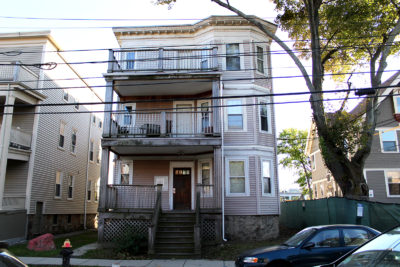
Young professionals who spent four years of their lives in America’s college town may find it increasingly hard to live in Boston post-graduation. Rising rent costs throughout the city of Boston, when combined with student loans and entry-level jobs, are raising barriers on entry.
The process of gentrification and a very high demand for housing has made the Boston housing market competitive in recent years, according to Linda Susan Sprague Martinez, a professor in the School of Social Work at Boston University.
“Not only are rents rising, [but] the cost of housing stock has gone up incredibly, and that’s trickled down into rents,” Sprague Martinez said. “So neighborhoods that were once affordable for new homebuyers and renters … it’s gotten really pricey.”
For students enrolled in Boston colleges and universities who wish to continue living in the city after their graduation, this is a problem. Approximately 152,000 college students currently live in Boston, according to the Boston Planning and Development Agency. In comparison, Boston’s census population in 2016 was 656,051 individuals, according to the Boston Planning and Development Agency.
The burden of student loans contributes to the stress of recent college graduates who hope to start their careers in the city.
Mike Schueller, 22, of Allston, said that the cost of living in Boston, especially rent costs, has been a very important factor in his post-college life after graduating from BU with a degree in engineering.
“I have quite a large amount of student debt, so a large portion of my salary goes towards monthly payments on those loans,” Schueller said. “Since my loans and rent are the two highest priority bills I have, I had to make sure I picked an apartment that I could afford while being conscious that I needed money for food and other expenses.”
Sprague Martinez said the presence of the college-aged and post-college population plays a role in gentrification and increased rents, driving prices up in areas such as Mission Hill and Highland Park in Roxbury, often in ways that hurt recent grads and current residents.
“Landlords can see that they can rent to not only college grads but college students, and they can charge by the bedroom,” Sprague Martinez said. “[Charging by the bedroom] drives up the overall price of the apartment unit.”
Rachel Eckles, 22, currently lives in Mission Hill after graduating from BU. She reported she found housing she was satisfied with, if not in the original neighborhood she desired.
“There’s definitely a lot of demand among my demographic, but there’s also a lot of supply for apartments opening on [Sept. 1],” Eckles said. “After a long time searching, I found an affordable apartment with my friends.”
Marwa Sayed, 22, currently lives in Jamaica Plain after graduating from BU.
“I was wondering if I could afford to live in Boston because of how high the rent is; I thought I might have to go to Malden or Medford, where prices are still increasing anyways,” Sayed said. “I live in JP now, and the rent is too high, but it’s better than a lot of other places.”
Sayed explained that developments must have 15 percent affordable units — which means people in the area making median income — to be considered as affordable housing. She went on to say that it’s an “imperfect way to measure how much people can afford because it varies so much by area and neighborhood.”
She said she wonders who can possibly afford new developments.
“So I see all these shiny new developments go up, and I really wonder who can afford them because it’s not anyone I know,” Sayed said. “But clearly people can afford them, and so the housing that’s left becomes even more competitive and rents increase disproportionately to wages/salaries, which leaves us with less and less in savings each year.”
According to Sarah Hosman, a Ph.D. candidate in sociology at BU, the rental market in Allston, a traditionally collegiate neighborhood, is very competitive.
“There is very high renter occupancy, around 87 percent in Allston,” Hosman said. “It’s historically been, since the 1980s, a high renter neighborhood.”
She also said that after years of declining population, Boston is experiencing increasing population. The housing stock has yet to keep up.
“People are afraid of being displaced,” Hosman said. “People are afraid they will have to move outside Boston.”



























































































































